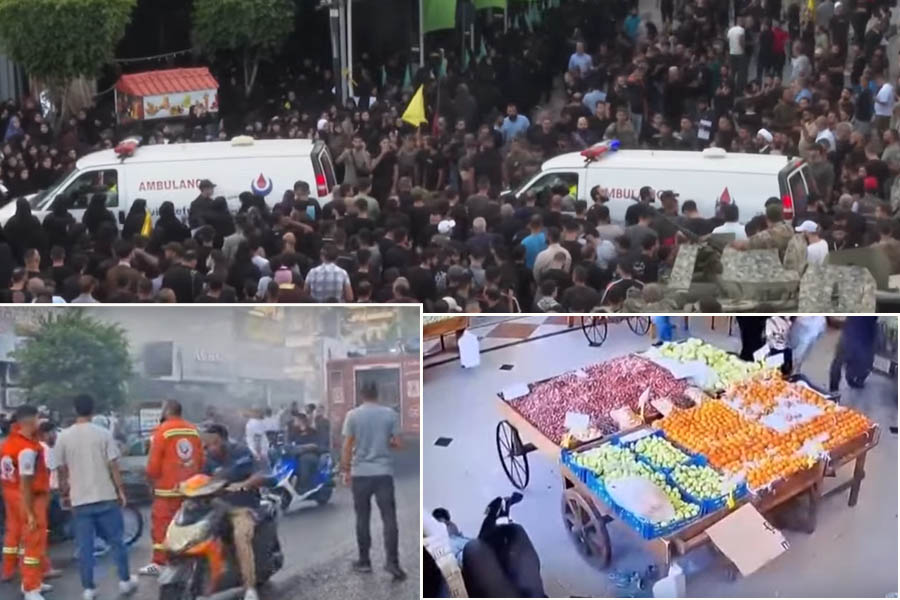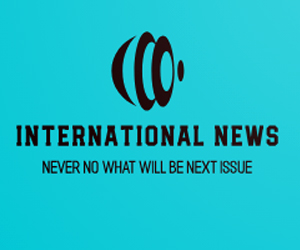
The volatile situation in Lebanon has worsened as a second wave of deadly explosions has rocked Hezbollah strongholds, killing at least 20 people and injuring over 450, according to the country’s health ministry. These attacks, which targeted wireless communication devices such as walkie-talkies, have deepened fears of a broader regional conflict involving Israel, Hezbollah, and neighboring nations.
Explosions Devastate Hezbollah Strongholds
The explosions took place in southern Beirut, the Bekaa Valley, and southern Lebanon, areas known as Hezbollah strongholds. Some of the blasts occurred during funerals for the victims of Tuesday’s initial attack, which had already killed 12 people when Hezbollah members’ pagers detonated. Hezbollah, the powerful Lebanese armed group, has blamed Israel for both sets of attacks. However, Israel has not issued any official comment.
Lebanon’s state-run National News Agency (NNA) reported that one man was killed when a walkie-talkie exploded inside a shop selling cellular devices in Chaat, in the northern Bekaa Valley. The device was identified as an ICOM-V82 handheld VHF radio, a discontinued model manufactured by Japan-based electronics company ICOM. Another ICOM-V82 device exploded in a home near Baalbek, causing extensive fire damage.
Israeli Involvement Alleged in Explosive Devices
U.S. and Lebanese sources have informed major outlets, including The New York Times and Reuters, that Israeli forces planted small amounts of explosives inside the pagers that exploded on Tuesday. While Israel remains silent on the allegations, the claim has already fueled anger and heightened the sense of impending conflict. These explosive devices, initially used by Hezbollah members, appear to have been targeted to cause maximum disruption within the group’s ranks.
This revelation has prompted a strong reaction from Hezbollah, which has escalated its rhetoric against Israel and hinted at retaliatory measures. The Lebanese government has also expressed outrage, with officials preparing to submit a formal complaint to the UN Security Council regarding what they consider an Israeli attack on their territory.
Lebanon’s Spiraling Humanitarian Crisis
Lebanon’s health ministry has been overwhelmed by the surge of casualties. Hospitals are treating hundreds of wounded, with many requiring complex surgeries due to blast injuries. The health ministry is working with international aid organizations to provide emergency medical care, but Lebanon’s healthcare system, already weakened by economic collapse and previous crises, is struggling to cope.
The sheer scale of these explosions and their deliberate targeting of civilian areas has sparked widespread fear among the Lebanese population. The attacks come at a time when the country is already dealing with economic turmoil and political instability, raising concerns that Lebanon could become engulfed in a full-scale conflict if the situation worsens.
Israel's 'New Phase' of War
Meanwhile, Israel has declared the start of a “new phase” in its war efforts, shifting its military focus to Hezbollah in Lebanon. Israeli Defense Minister Yoav Gallant has stated that Israel is moving significant forces and resources toward the northern front, specifically to counter Hezbollah’s increasing presence along the Israel-Lebanon border. Gallant has praised the Israeli military for its effectiveness, describing their operations as "impressive."
Although Gallant did not directly comment on the explosions in Lebanon, his remarks indicate that Israel is preparing for a prolonged and potentially expanded military campaign. The escalation in Lebanon could see the conflict in the north become a major front, drawing in additional regional powers and complicating efforts to de-escalate the violence.
International Responses and Calls for Restraint
The global community has responded with alarm to the escalating situation. UN Secretary-General António Guterres has renewed his call for “maximum restraint” from all parties, urging them to return to diplomacy and prevent further bloodshed. The UN has expressed grave concern over the humanitarian toll, especially in light of the increasing number of civilian casualties in Lebanon.
U.S. Secretary of State Antony Blinken, speaking from Egypt, reiterated that the U.S. was not involved in the explosions, and he emphasized the need for a ceasefire to avoid the conflict spiraling out of control. Meanwhile, the European Union’s top diplomat, Josep Borrell, condemned the “indiscriminate collateral damage” from the explosive devices and called for accountability for those responsible.
Saudi Arabia and the Palestinian Question
Amid the rising tensions, Saudi Crown Prince Mohammed bin Salman has made it clear that the kingdom will not normalize relations with Israel without the establishment of an independent Palestinian state. In a speech to the advisory Shura Council, the crown prince condemned the Israeli occupation’s “crimes” against Palestinians and affirmed Saudi Arabia’s commitment to the Palestinian cause. This stance has added another layer of complexity to the region’s diplomatic dynamics, as Saudi Arabia plays a critical role in shaping the broader geopolitical landscape.
A Region Teetering on the Edge
The second wave of explosions in Lebanon, coupled with Israel’s increased military focus on Hezbollah, has pushed the region to a dangerous tipping point. With mounting casualties, accusations of foreign involvement, and escalating rhetoric from both sides, the risk of a broader Middle Eastern war appears ever more likely.
As international leaders call for restraint, the path forward remains uncertain. Lebanon faces an urgent humanitarian crisis, while Israel's declaration of a new military phase indicates that the conflict could deepen further. The coming days will be crucial in determining whether diplomacy can avert a catastrophic escalation or whether the Middle East will plunge into a wider, more devastating conflict.
#LebanonCrisis 🇱🇧💥 #PagerExplosion 📟💥 #MiddleEastConflict 🌍⚔️ #HezbollahExplosions 💣🔥 #IsraelVsHezbollah 🇮🇱🆚🇱🇧 #BeirutBlasts 💥🏙️ #EscalatingWar 🪖⚠️ #HumanitarianCrisis 🆘🤕 #UNCallsForPeace 🕊️🌐 #SaudiPalestineSupport 🇸🇦✊🇵🇸 #LebanonUnderAttack 💣💔 #InternationalTensions 🌍⚡ #MiddleEastUpdate 📰📡
Thank you for reading: globalpostheadline.com





